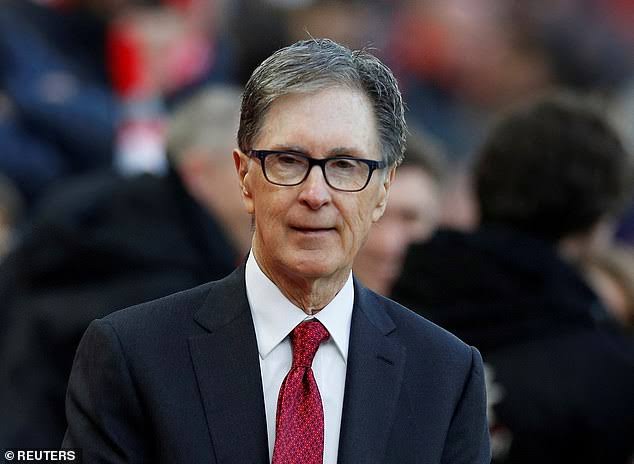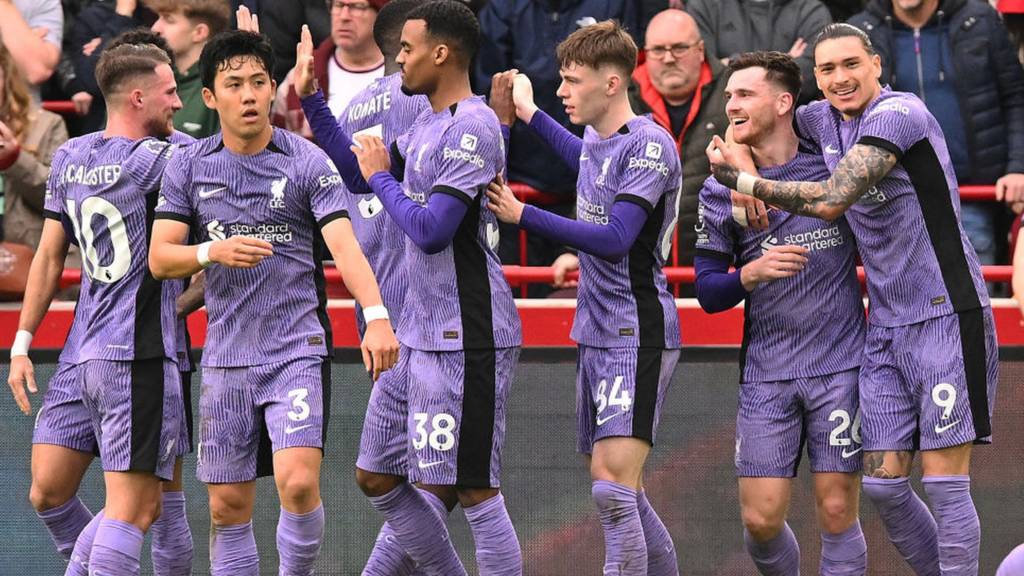Before the Premier League match between Chelsea and Liverpool at Stamford Bridge, Liverpool owner John Henry watches.
Three of the most powerful men in English football were among the Stamford Bridge spectators on Sunday.
Chelsea co-owners Todd Boehly and Behdad Eghbali of Clearlake Capital watched their team debut under new manager Mauricio Pochettino against a Liverpool team managed by Jurgen Klopp who were looking for their own relaunch after last season’s disappointing fifth-place finish that cost them the Champions League.
Boehly and Eghbali were joined by Liverpool’s principal owner John Henry, head of the club owners Fenway Sports Group, as interested billionaires onlookers. Boehly and Eghbali’s first season at Chelsea was an absolute disaster as the London club went through three managers and enormous spending to finish the season in the miserable position of 12th.
The build-up to the game had been dominated in the days before by the transfer battle that was taking place for Brighton and Hove Albion midfielder Moises Caicedo. If the first game of a new season and a meeting between two of English football’s heavyweights to kick start a campaign wasn’t enough.
The 21-year-old Ecuadorian had been a target for Chelsea for a very long time, but the Londoners had four bids for him rejected because Brighton was steadfast in their £100 million or more asking price. The news that Liverpool had accepted a £111 million bid for Caicedo on Friday raised hopes that the record-breaking British transfer would be completed. But despite spending more than £750 million during Boehly and Clearlake’s tenure, Chelsea refused to give up and, on Sunday, returned with a £115 million offer after the player had already committed to moving to Stamford Bridge.
But they haven’t stopped there. Romeo Lavia, a long-time Reds target who has already been the subject of several unsuccessful Liverpool bids, is still up for grabs between Chelsea and Liverpool the day after the two teams squared off in an exciting 1-1 draw in the capital. On Monday, it was reported that Liverpool had accepted a £60 million bid for the 19-year-old Southampton midfielder after initially being reluctant to spend £50 million on him. The deal, like with Caicedo, is not finalized, and Chelsea is attempting to bloody Liverpool’s nose for the second time in a short period of time.
Risks come with Chelsea’s enormous investment.
If they were to secure Caicedo and Lavia, their spending would reach more than £900 million. Players have left in droves, but despite this, they will undoubtedly come under the Premier League’s scrutiny for possible profit and sustainability violations. The team will need to make even more cuts, probably focusing on offloading academy players who, like Mason Mount and Ruben Loftus-Cheek, have a book value of zero, which means that any proceeds from their sale would be pure profit.
However, while attention was focused on the Saudi Arabian Pro League’s potential for disruption and how it might shake up the top level of international football in the years to come, the change that has taken place at Chelsea has been far more seismic than anyone could have anticipated, not least Henry himself.
The owners of the club had hoped that Financial Fair Play regulations, which were set to be implemented in 2012, would limit major expenditures and create a more competitive playing field where pursuing marginal gains through data and science-assisted recruitment would help lead to success, when FSG acquired the team in 2010. FFP was redesigned last year because it never had any teeth, though. By making a £111 million bid for Caicedo, Liverpool and FSG have demonstrated that they must fight fire with fire if they want to continue to be among the title contenders year after year. They had attempted to operate under the same model as before.
Henry shared his opinion that financial controls in football need to be tightened up in a March interview with the ECHO.
You’re right that the Premier League is facing growing financial difficulties, he said.
“The league itself is incredibly successful and the best football competition in the world, but we’ve long believed that spending should be restricted to prevent the league from becoming like European leagues, where one or two clubs have little competition each year.
“The most crucial aspect of the Premier League is excitement, which depends on competition.
“Many football teams have taken unsustainable turns in the past, including LFC. Our attention is currently, and will remain, primarily on making smart transfers.
For the 2024–25 season, a new independent regulator will be in place with the goal of ensuring the financial viability of the sport in this nation. The Premier League has its own rules and guidelines regarding this matter, and clubs that violate the allowable losses of £105 million over a rolling three-year period could face sanctions under the League’s Profit and Sustainability Regulations. The 70 percent squad cost rule, which would limit clubs to spending no more than 70 percent of their revenue on transfer fees, wages, and agent fees, was one of the new Financial Sustainability regulations that UEFA unveiled last year. Clubs have until 2025 to reach that percentage, and in the interim seasons, a sliding scale with annual reductions of 10% is in effect.
Chelsea still has time to attempt to lessen the financial burden by securing additional player departures. However, the recent period of heavy market spending has driven up transfer fees beyond the already absurd levels they had attained, forcing Liverpool and the rest to continue spending more to participate in the market.
It remains to be seen if the risk pays off for Boehly and Clearlake and if, should Chelsea violate P&S regulations, the Premier League, which has brought more than 100 charges regarding alleged historical financial breaches against Manchester City, which City denies, as well as one against Everton, which the Toffees also deny, has the authority to seriously deter future violations, will have any effect. In either case, Henry and FSG have little choice but to spend their way out until that time comes, and that will only serve to raise the market.



